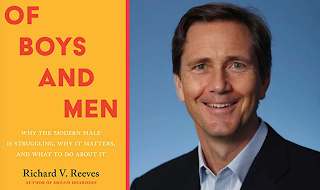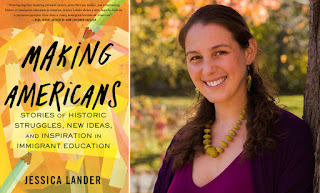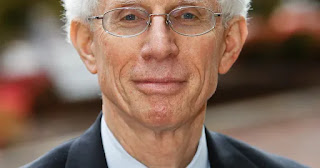Almost since the beginning of time, men have shaped society. From ancient times to Mad Men, patriarchy was the defining framework of our society. Men dominated in industry, as workers and leaders; in college graduation, in earnings, in national and local leadership, and in protecting our society. Women and girls were left behind
In the 70s and 80s, all of that began to change. Things like Title IX in1972, and the feminist movement were both achievements and symbols of success, and harbingers of important societal changes
But none of this happened in a vacuum. Other social, political, and sociological changes were taking place. In the nature of work, of communication, of education of character and economics.
Over time, and not just as a zero sum exercise, the world of boys and men changed. Some of the changes were obvious and frankly, more men should have seen them coming. Others happened in a more subtle way, not unlike the frog in boiling water.
Suffice it to say that today these changes have fully reshaped our society. The gender gap is reshaping our politics and feeding authoritarian populism. It impacts the raising of younger generations and adds to class, cultural, economic, and political divisions. And unfortunately, like almost everything else, it’s become a talisman of left / right polarization.
Trying to raise the conversation about that is my guest Richard V. Reeves in his new book Of Boys and Men: Why the Modern Male Is Struggling, Why It Matters, and What to Do about It.
My conversation with Richard V. Reeves:





